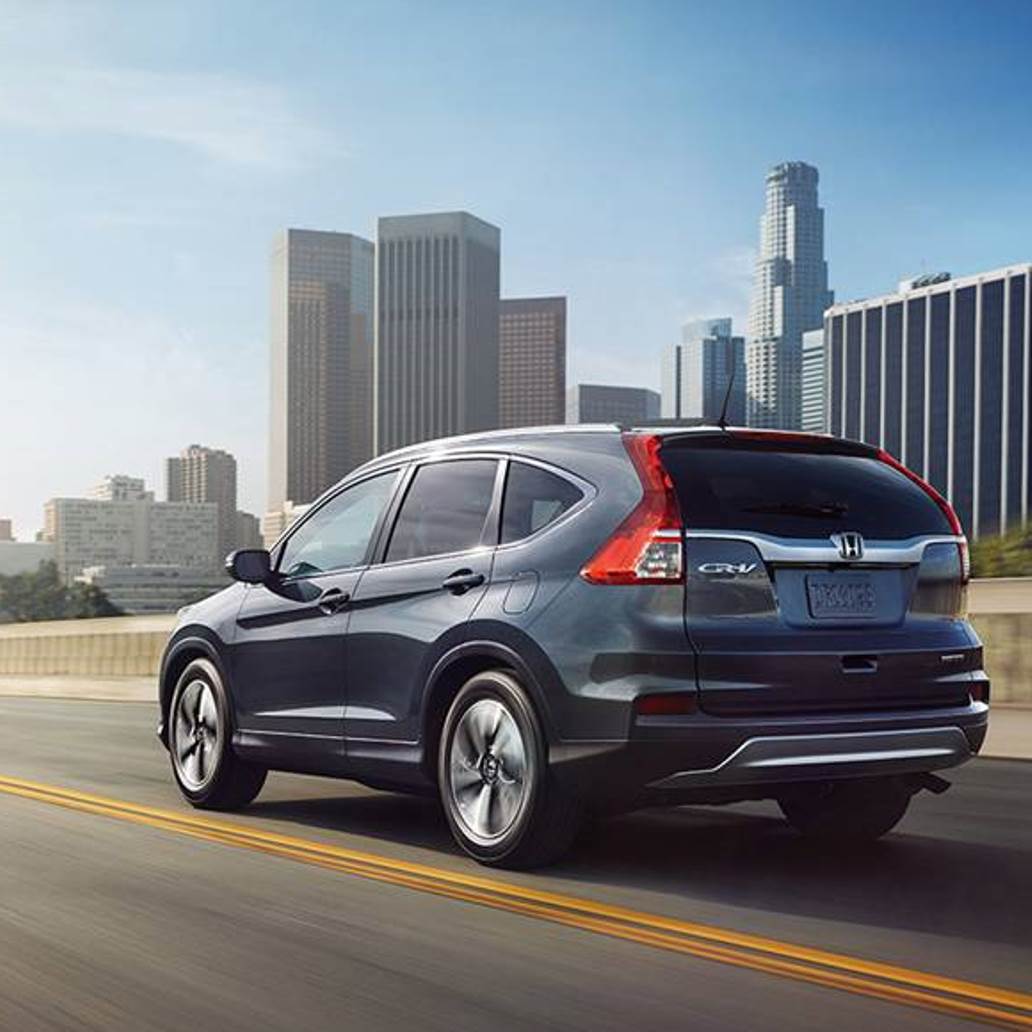
For the first time since 2010, the number of automobiles sold in America dropped in 2017. Americans were more willing to hold on to older vehicles than in previous years, leading to a 1.8% dip in sales compared to 2016.
The trend of shifting consumer tastes from sedans and coupes to SUVs has been even more pronounced in 2017. As Tim Fleming, an analyst at Kelley Blue Book, told 24/7 Wall St. in an interview, “People don’t want big entry luxury cars. They want crossovers, they want SUVs right now.”
As car sales have declined, SUVs and crossovers have become the biggest growth area in the automotive marketplace. Car sales dropped about 10% over the last year, even as crossover and small SUV sales jumped by 18.2% and 27.9%, respectively.
Some of these models are so popular, dealers have a hard time keeping them in stock. The number of days it takes to sell a car, also known as days to turn, is a way to measure how certain cars are performing against manufacturer expectations. It can also provide insight into the struggles of a company and the auto industry as a whole.
24/7 Wall St. reviewed data provided by Kelley Blue Book to determine which types of vehicles sold the quickest in 2017.
Click here to see the 15 cars so hot they’re out of stock.
Click here to see our detailed findings and methodology.
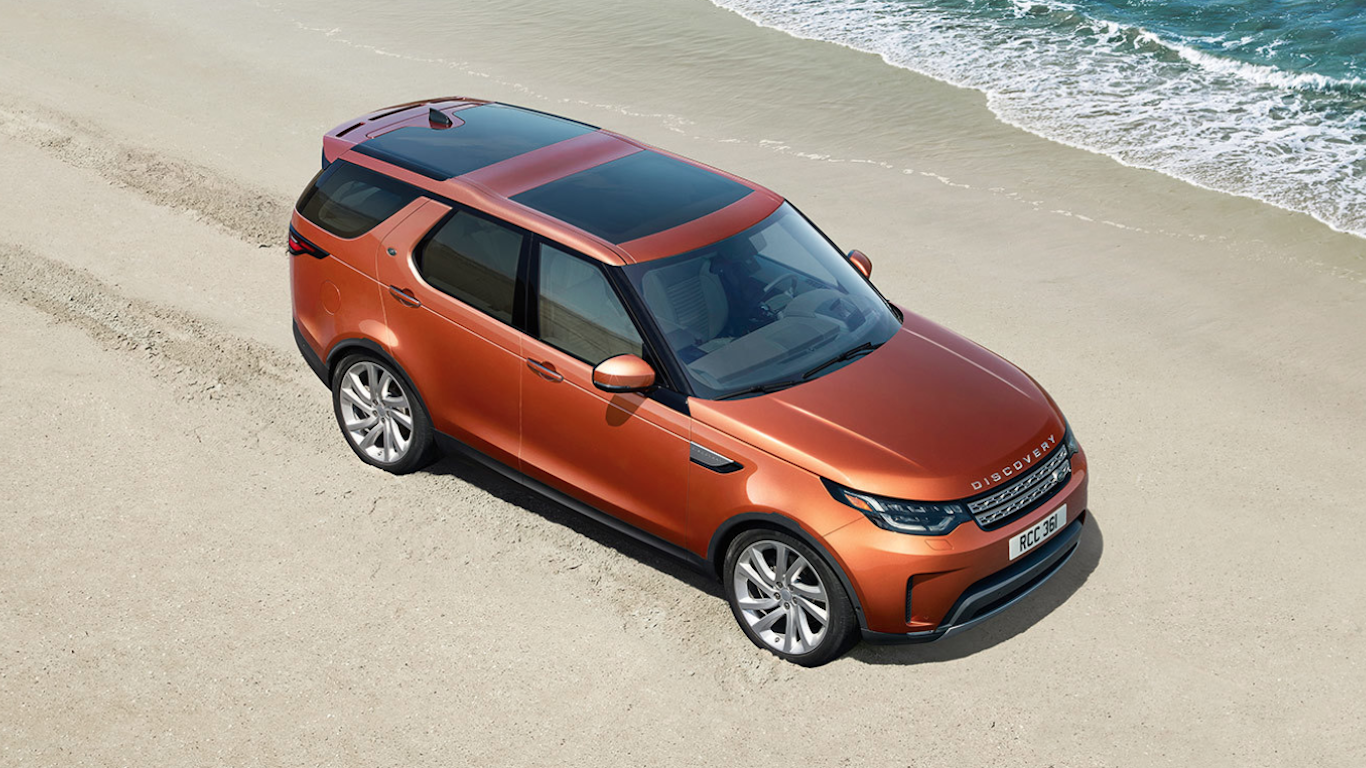
15. Land Rover Discovery
> Avg. days on lot: 41.2
> 2017 sales: 5,989
> 2016 sales: N/A
> Starting at: $52,090
Land Rover’s new SUV, the Discovery, made a strong debut in 2017. The company sold nearly 6,000 models, each lasting on the dealer’s lot for about six weeks on average. Discovery sales may have been bolstered by positive critical reviews and the overall trend of Americans buying more SUVs than cars.
[in-text-ad]
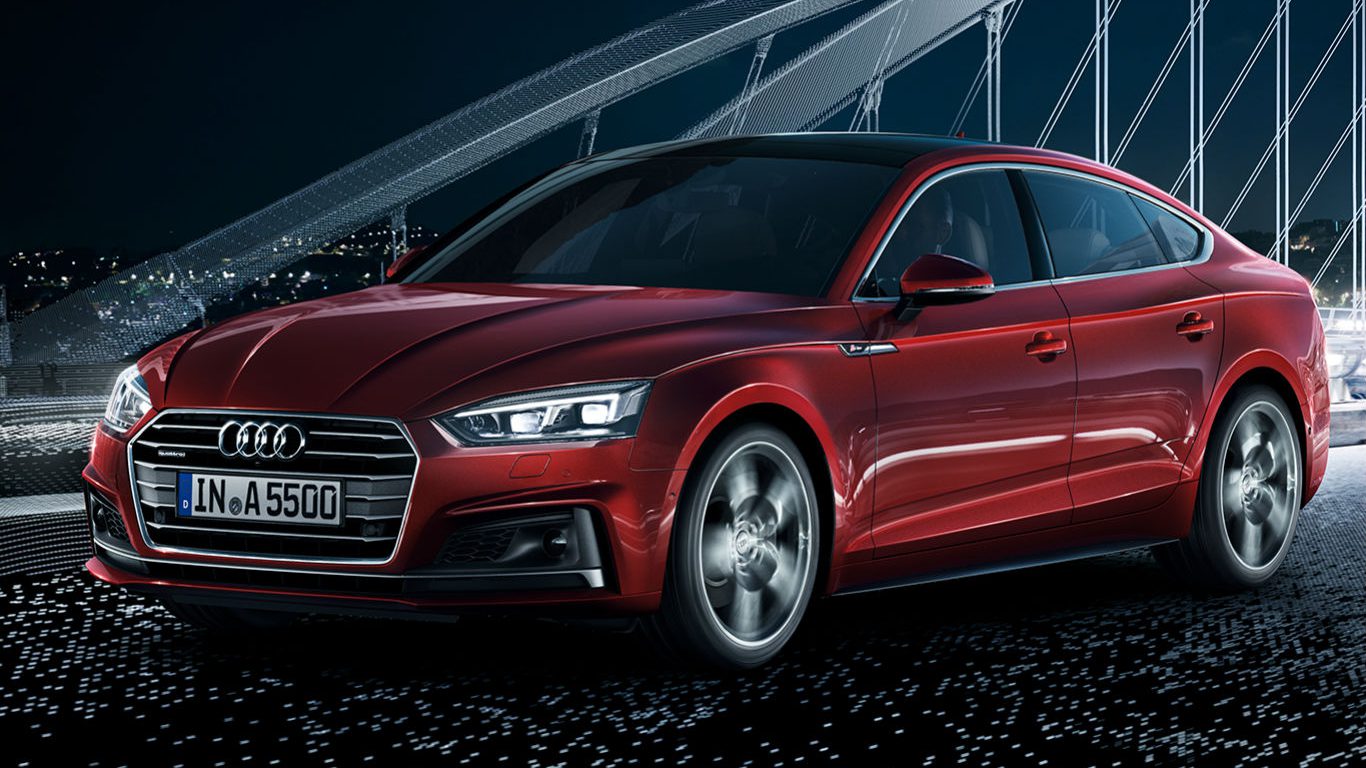
14. Audi A5
> Avg. days on lot: 41.1
> 2017 sales: 21,301
> 2016 sales: 8,354
> Starting at: $42,600
Though sales for most types of cars are struggling, luxury cars are holding steady — and the Audi A5 is one of the of the most resilient luxury cars. After introducing the new B9 family of A5s in 2016, unit sales increased by more than 150% the following year.

13. Mercedes-Benz G-Class
> Avg. days on lot: 40.4
> 2017 sales: 4,188
> 2016 sales: 3,950
> Starting at: $123,600
The $123,600 price tag on a Mercedes-Benz G-Class didn’t stop consumers from quickly snatching it up. Sales of the boxy SUV increased from 2016, selling over 4,000 units in 2017.
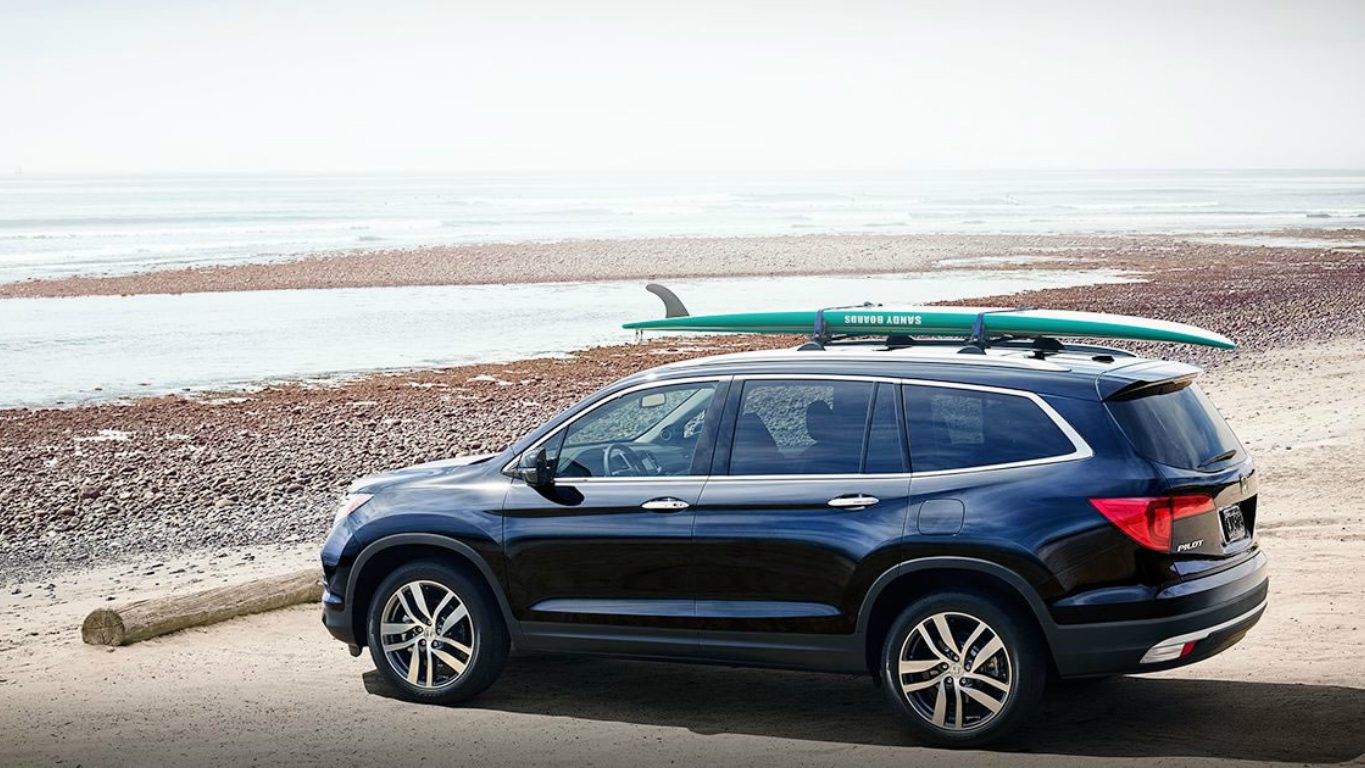
12. Honda Pilot
> Avg. days on lot: 38.1
> 2017 sales: 127,279
> 2016 sales: 120,772
> Starting at: $30,900
Honda, one of the most popular car makers in the U.S. market, makes three of the cars on this list. There was a slight uptick in Pilot sales in 2017 compared to 2016, when Honda unveiled the SUV’s third generation model.
[in-text-ad-2]
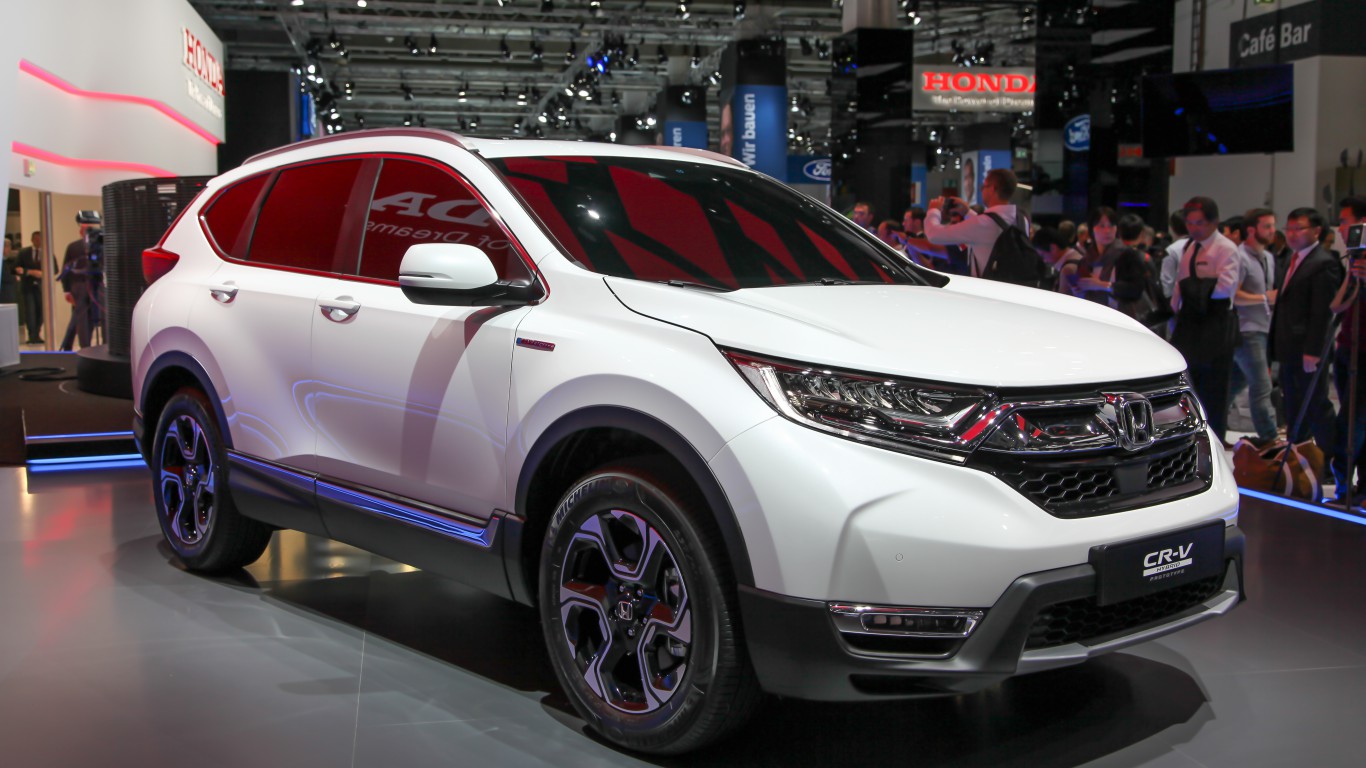
11. Honda CR-V
> Avg. days on lot: 38.0
> 2017 sales: 377,895
> 2016 sales: 357,335
> Starting at: $24,150
The Honda CR-V is one of the most popular vehicles in the entire country and it flies off the lot quickly. The 2017 model continued to be a big draw, selling nearly 378,000 vehicles. Honda sold more than 1 million CR-Vs over the last three years.
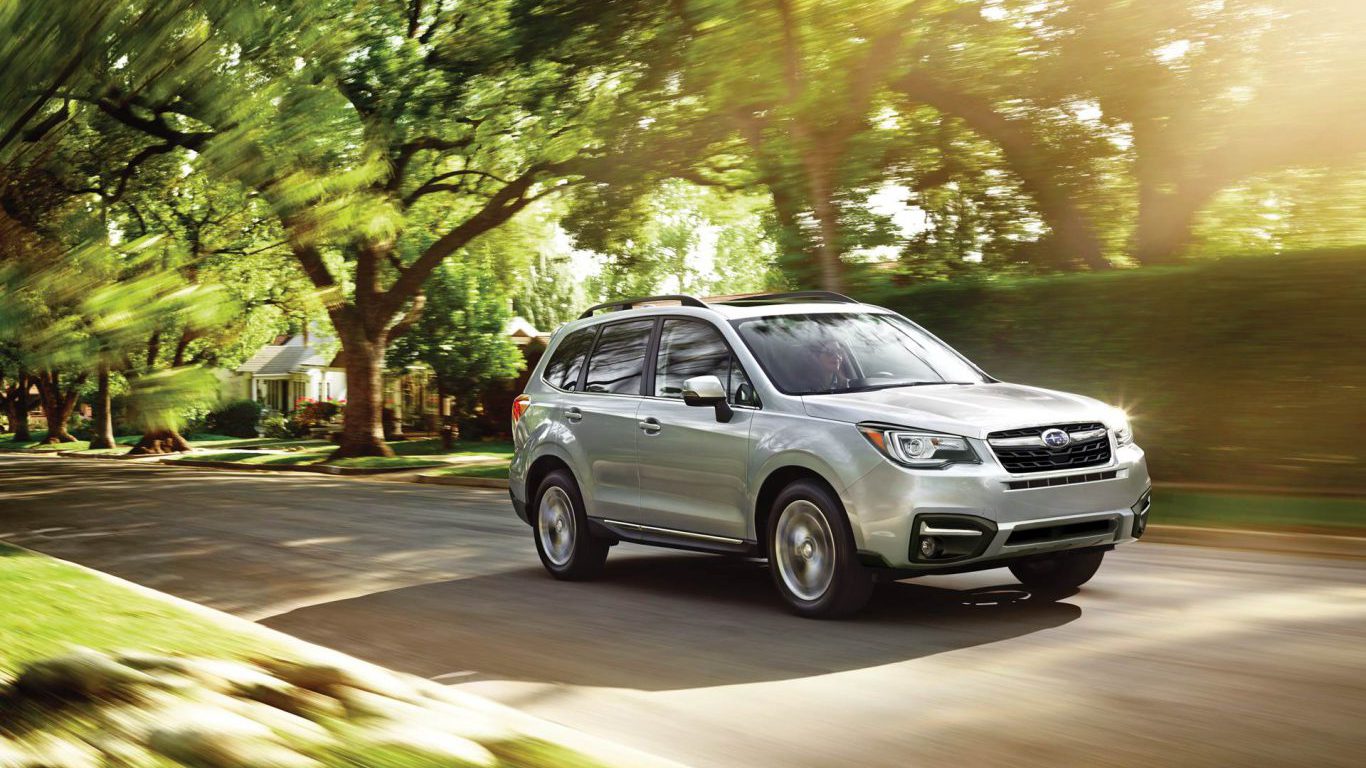
10. Subaru Forester
> Avg. days on lot: 37.8
> 2017 sales: 177,563
> 2016 sales: 178,593
> Starting at: $22,795
Crossovers are one of the fastest growing segments in the automotive world. As an affordable, highly rated crossover, the Subaru Forester is cashing in on that trend. Forester sales jumped from under 124,000 in 2013 to nearly 160,000 in 2014, when Subaru rolled out the fourth generation model. Sales have continued their upward trajectory in recent years, and over 177,000 units were sold last year in the U.S.
[in-text-ad]
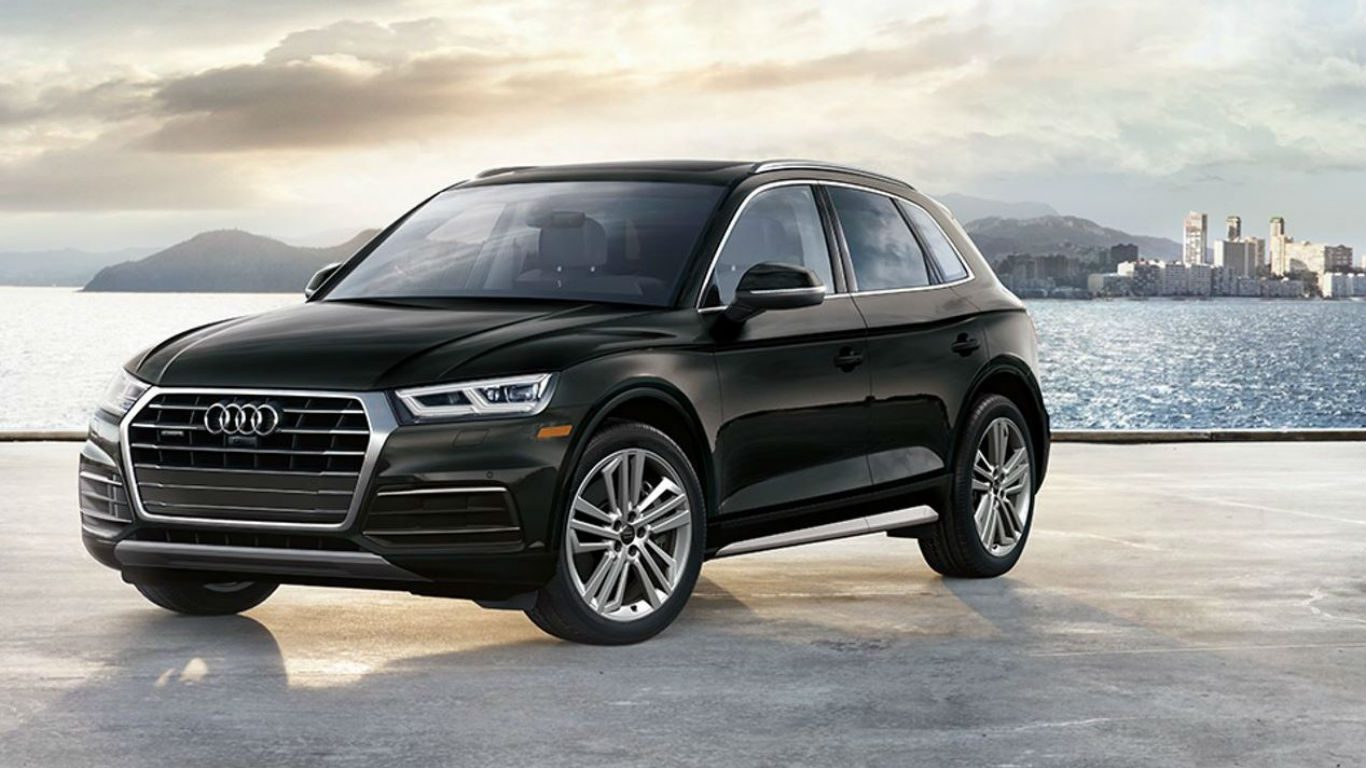
9. Audi Q5
> Avg. days on lot: 37.1
> 2017 sales: 57,640
> 2016 sales: 49,550
> Starting at: $41,500
Audi rolled out the first member of the second generation Q5 in 2017 and it was an immediate success. U.S. News & World Report named the 2018 Q5 the best Luxury Compact SUV for Families. Sales for the Q5 saw an impressive 16% increase compared to 2016.
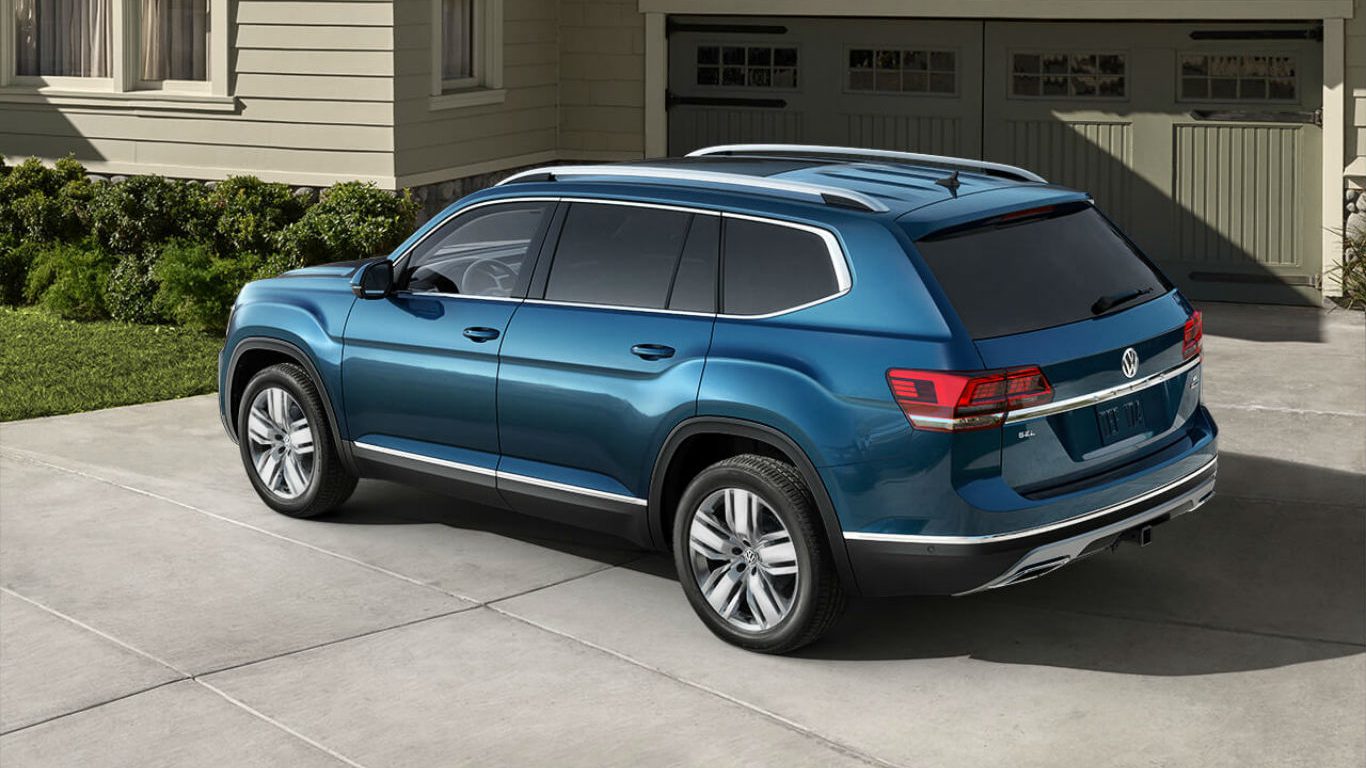
8. Volkswagen Atlas
> Avg. days on lot: 34.3
> 2017 sales: 27,119
> 2016 sales: N/A
> Starting at: $30,750
Upon its debut, the Volkswagen Atlas became the second-best selling vehicle in Volkswagen’s lineup in 2017. It can be tough to anticipate how well a car will sell, but with the popularity of crossovers and SUVs, the Atlas seems to be in high demand, lasting on dealership lots just over a month on average.

7. Audi A4 allroad
> Avg. days on lot: 34.0
> 2017 sales: 3,240
> 2016 sales: 2,300
> Starting at: $44,500
Demand for wagons like the Audi A4 allroad is dropping sharply, but Audi has managed its inventory well enough to make sure the A4 allroad, which started its fifth generation in 2016, doesn’t sit on the lot for too long. Audi sold just 3,240 A4 allroads in 2017, though the wagon lasted just 34 days on average on dealers’ lots.
[in-text-ad-2]
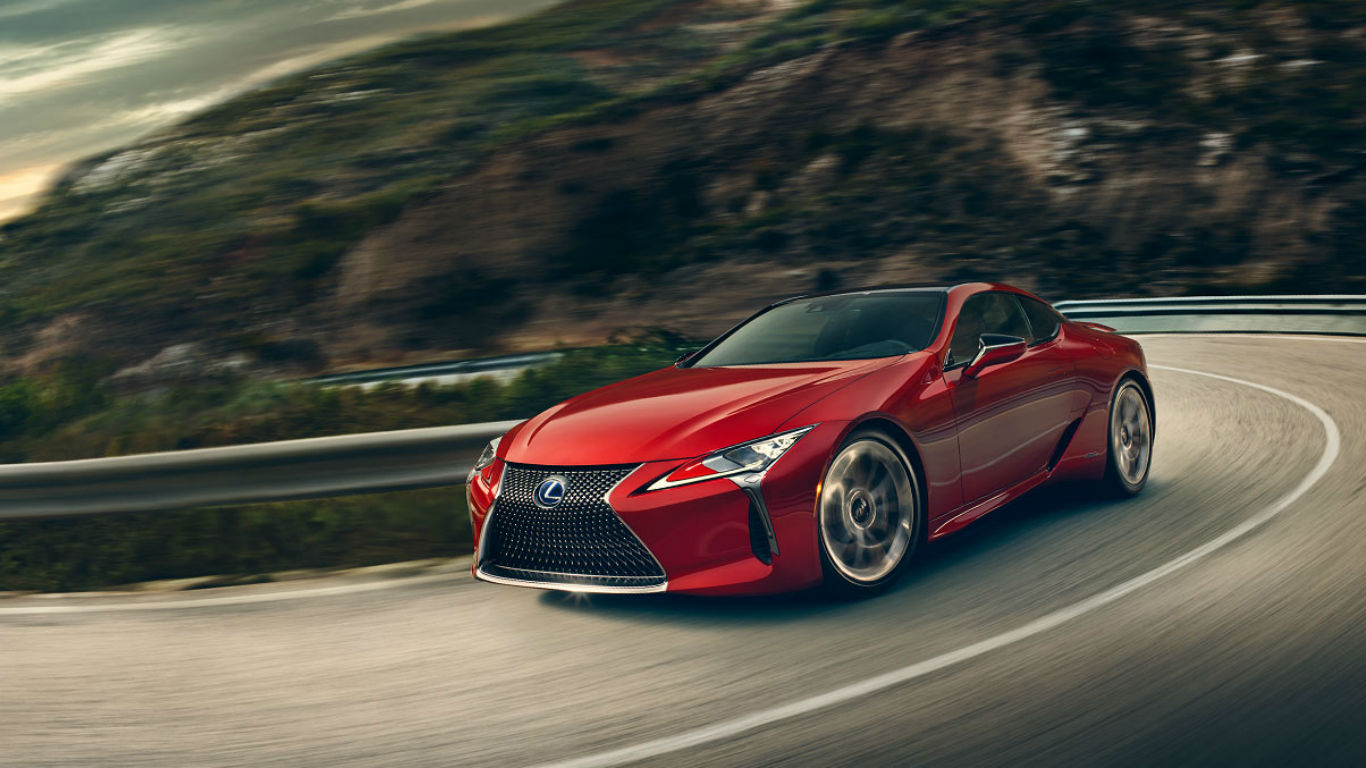
6. Lexus LC
> Avg. days on lot: 31.6
> 2017 sales: 2,484
> 2016 sales: N/A
> Starting at: $92,000
While cars appear to be going out of style in favor of SUVs and crossovers, luxury cars are the one segment of the market that is holding steady. The Lexus LC made a strong debut in that category in 2017, selling nearly 2,500 models in its first year.
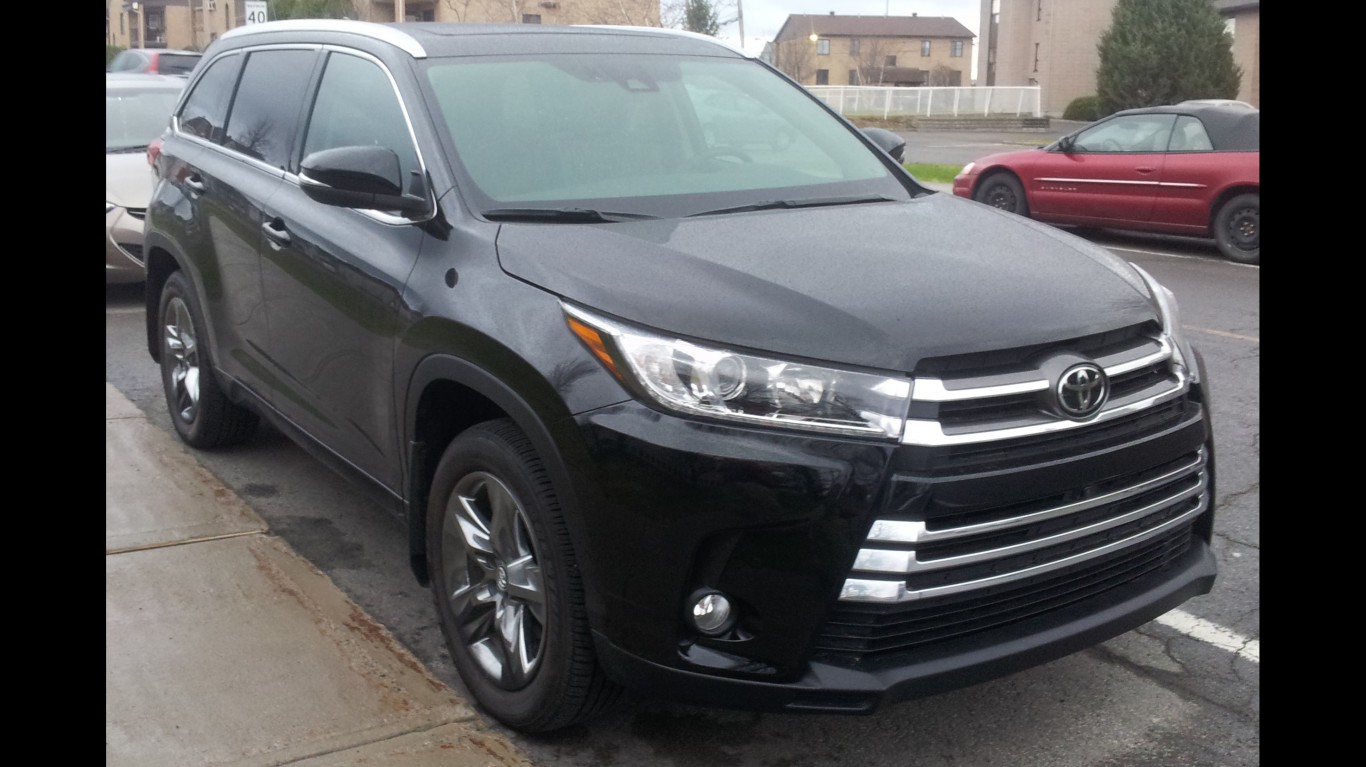
5. Toyota Highlander
> Avg. days on lot: 29.8
> 2017 sales: 215,775
> 2016 sales: 191,379
> Starting at: $31,030
Toyota has been rolling out third generation Highlanders since 2013, but a slight update to the SUV in late 2016 appears to have made a world of difference. Sales have jumped 36% in the past two years, increasing from under 159,000 in 2015 to over 191,000 in 2016 and 215,775 last year.
[in-text-ad]
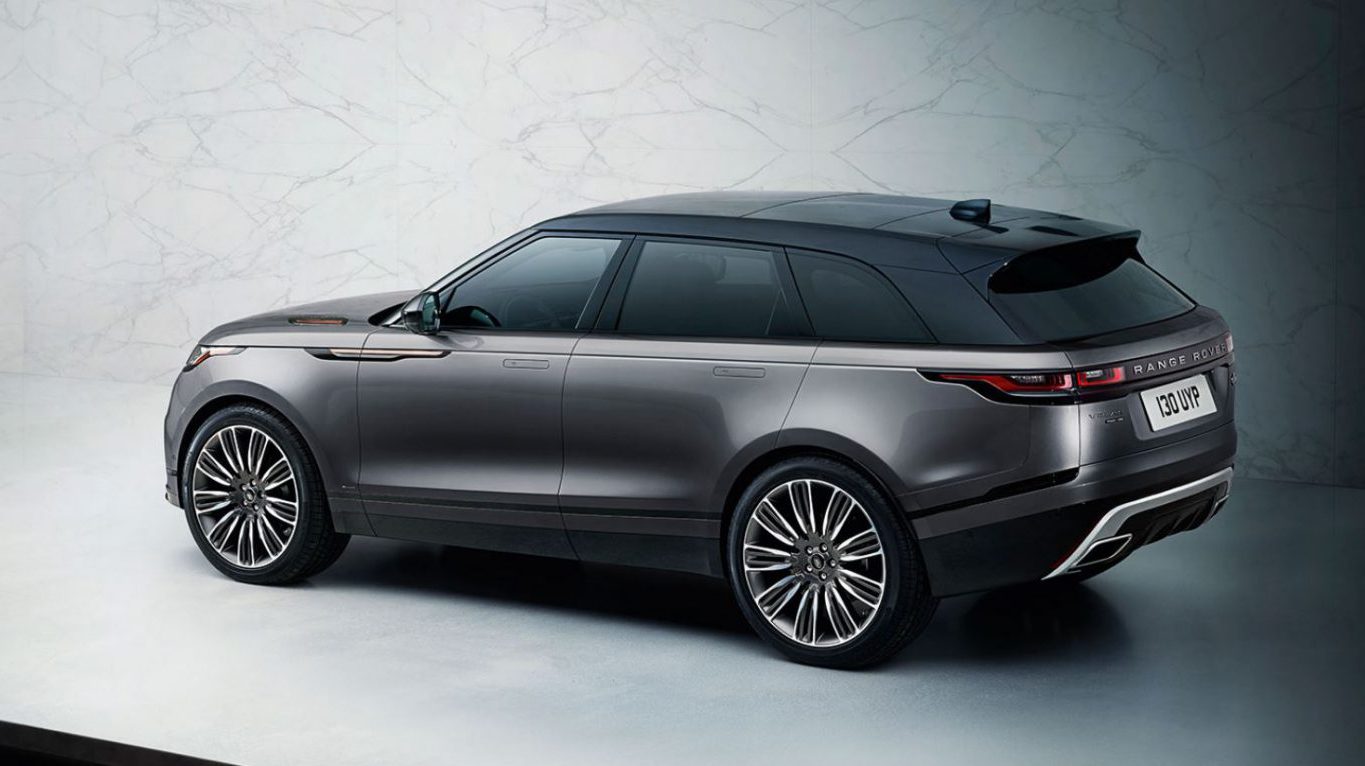
4. Range Rover Velar
> Avg. days on lot: 29.3
> 2017 sales: 6,153
> 2016 sales: N/A
> Starting at: $49,900
Range Rover debuted its fourth model, the Velar, in mid-2017. The Velar provides a middle ground compared to other Range Rovers in terms of both price and size. Though only a few thousand Velars were sold, they lasted on the lot less than a month on average.

3. Mercedes-Benz GLC
> Avg. days on lot: 27.3
> 2017 sales: 48,643
> 2016 sales: 47,872
> Starting at: $40,050
As SUVs grew to dominate the automobile marketplace, Mercedes-Benz rolled out the GLC in 2015 to replace its GLK line. One of the least expensive Mercedes-Benz SUVs, the GLC offers a popular style of vehicle from a marquee manufacturer for just over $40,000, and it has become one of the best-selling luxury SUVs in the U.S.
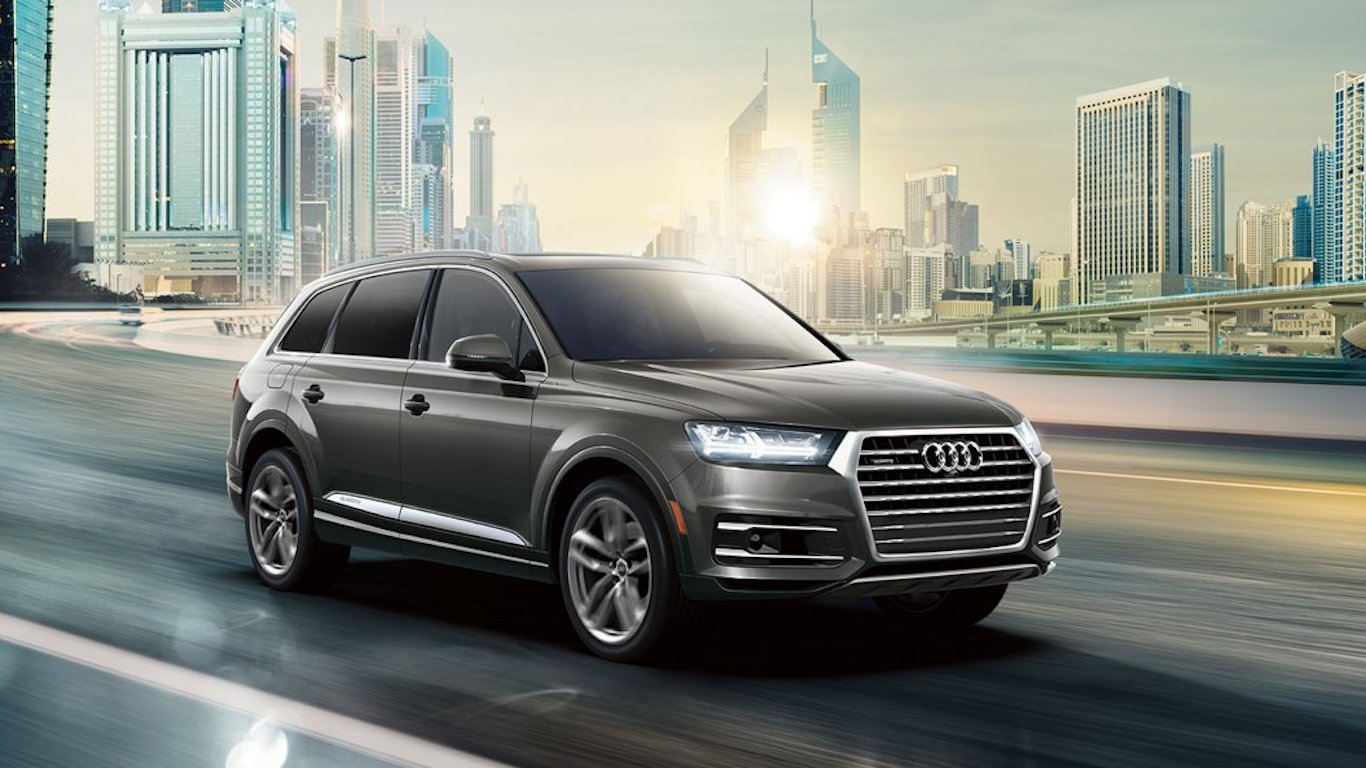
2. Audi Q7
> Avg. days on lot: 23.9
> 2017 sales: 38,346
> 2016 sales: 30,563
> Starting at: $49,900
After coming out with a second generation in 2015, sales of the revamped Audi Q7 continued to increase, likely due to largely positive reviews from critics. After selling just under 19,000 cars in its first year, Audi sold over 30,000 Q7s in the U.S. market in 2016 and over 38,000 in 2017.
[in-text-ad-2]
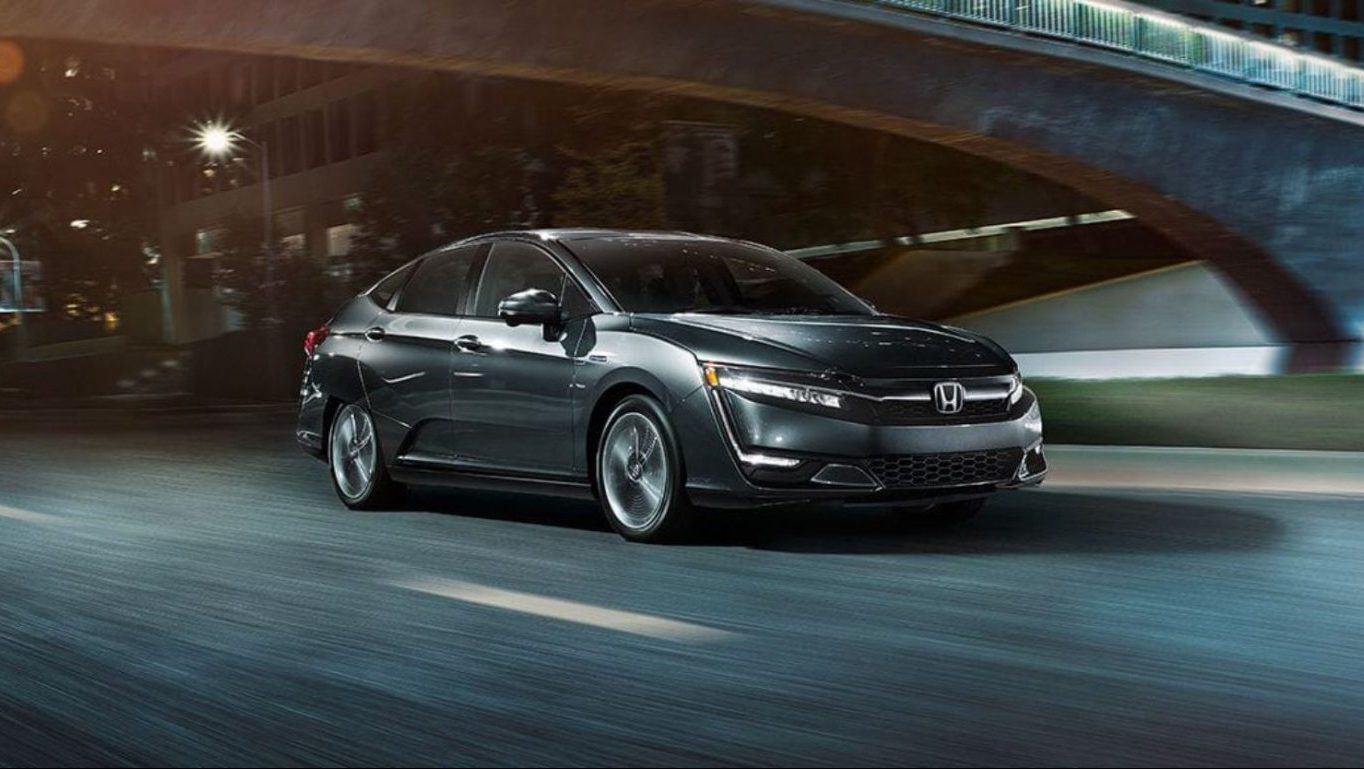
1. Honda Clarity
> Avg. days on lot: 13.2
> 2017 sales: 2,455
> 2016 sales: 8
> Starting at: $33,400
Honda could barely keep its new Clarity on the lot in 2017. After selling just a handful at the end of 2016 — when the new model was introduced — Claritys stayed on dealers’ lots less than two weeks on average before being sold. A low supply may have contributed to the high demand, as only a dozen Honda dealerships carry the car, which comes in electric, fuel cell, or hybrid.
Detailed findings & methodology:
As the American appetite for SUVs and crossovers continues to grow, many are selling quickly. Of the 15 cars with the shortest time spent on dealers’ lots, 11 are crossovers or SUVs.
With dozens of SUVs and crossovers on the market, a number of factors differentiate the fastest sellers from the rest. While overall quality and price are certainly huge factors, novelty may be the one factor that most of the automobiles on the list have in common.
Four of the cars on this list made their debut in 2017, not counting one that debuted in December 2016, selling just eight units that month. Car buyers often look for the latest and best models. Many other entries on the list are revamped versions of familiar nameplates. Car manufacturers often retool popular brands every five to 10 years or so.
For instance, the Honda CR-V has been around for 20 years, but the company unveiled its fifth generation of the SUV in 2017. These vehicles offer a new, modern look but feel like a known commodity.
The 2017 list includes some overlap with the year before. The Mercedes-Benz GLC, Audi Q7, Honda Pilot, Subaru Forester, and Toyota Highlander all had among the lowest days to turn in 2016 as well. Fleming said that repeat spots on this list indicate that the manufacturers are “managing their production extremely well, keeping these in tight supply and the products are strong enough to keep that demand up.”
However, just because a vehicle stays on the lot for a short amount of time, that doesn’t necessarily mean it’s a top seller. The Honda Clarity and Lexus LC both made the list while selling fewer than 2,500 models.
In order to determine the cars so hot they’re out of stock, 24/7 Wall St. reviewed data provided by Kelley Blue Book about the cars with the shortest days to turn in the U.S. market in 2017. KBB also provided data about the 2017 and 2016 sales figures. If a car was not available in 2016, the 2016 sales was was marked “N/A.” Days to turn measures the average number of days a car sat on a dealer’s lot until it was sold in 2017. Only vehicles that sold over 1,000 models in the U.S. market in 2017 were considered.
Is Your Money Earning the Best Possible Rate? (Sponsor)
Let’s face it: If your money is just sitting in a checking account, you’re losing value every single day. With most checking accounts offering little to no interest, the cash you worked so hard to save is gradually being eroded by inflation.
However, by moving that money into a high-yield savings account, you can put your cash to work, growing steadily with little to no effort on your part. In just a few clicks, you can set up a high-yield savings account and start earning interest immediately.
There are plenty of reputable banks and online platforms that offer competitive rates, and many of them come with zero fees and no minimum balance requirements. Click here to see if you’re earning the best possible rate on your money!
Thank you for reading! Have some feedback for us?
Contact the 24/7 Wall St. editorial team.
 24/7 Wall St.
24/7 Wall St. 24/7 Wall St.
24/7 Wall St.


